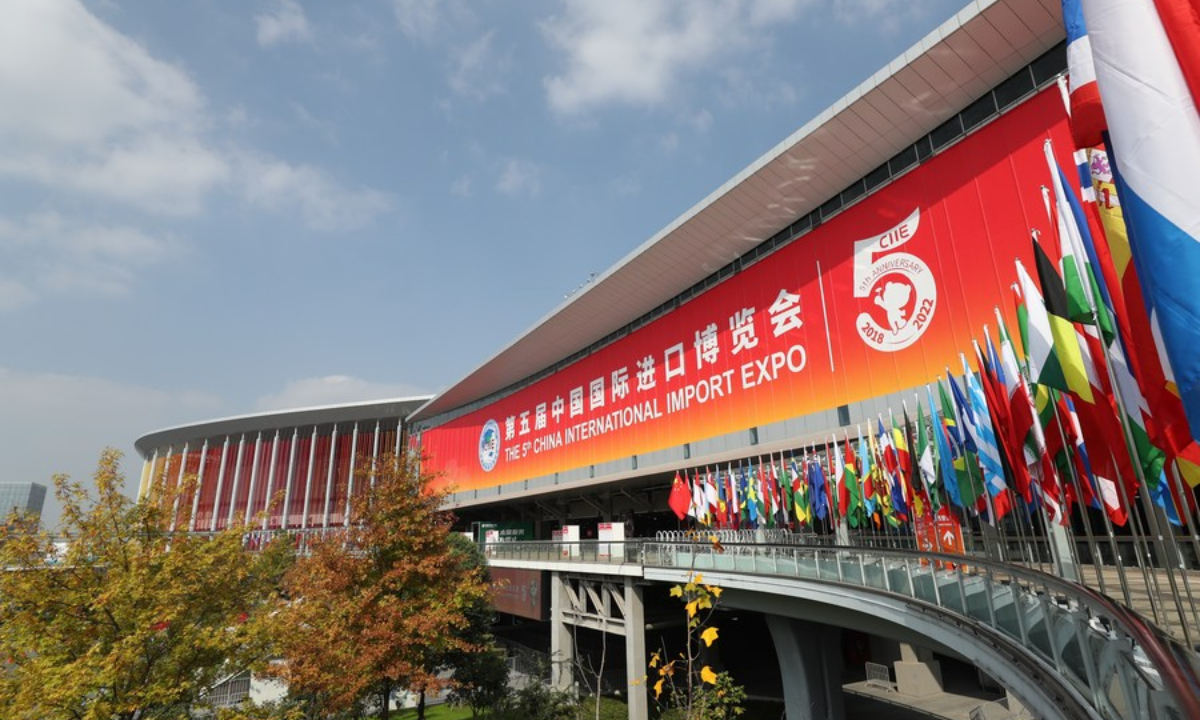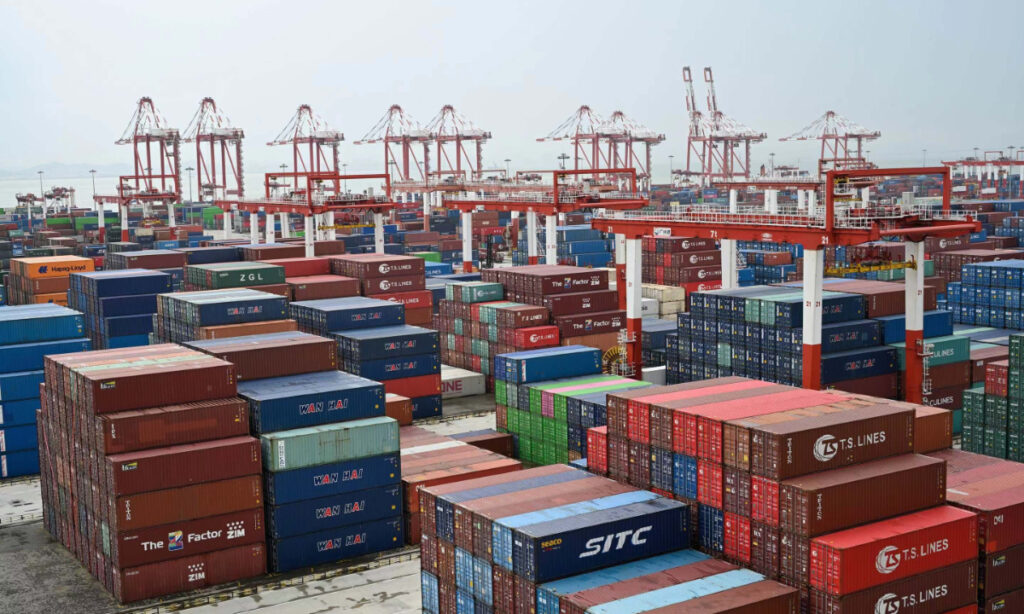Meeting points out need to uphold CPC leadership, arranges key missions including sci-tech innovation
A key meeting held Friday by the top decision-making body for China’s reform approved a series of policy documents, putting innovation in focus as a crucial step to achieving sci-tech self-reliance and strength, pledging support to boost the country’s private economy while affirming the need to uphold the Communist Party of China (CPC)’s leadership, as the country forged ahead steadfastly to deepen reform on the new journey.
Held in an important year – the first year for fully implementing the guiding principles of the 20th CPC National Congress, the 45th anniversary of China’s reform and opening-up and the 10th anniversary of the third plenary session of the 18th CPC Central Committee, Friday’s meeting is of far-reaching importance, as it laid out the direction, key tasks and detailed requirements for China’s reforms and opening-up in the next phase, experts said.
Presiding over the first meeting of the Central Commission for Comprehensively Deepening Reform under the 20th CPC Central Committee, Chinese President Xi Jinping, who also heads the commission, said that deepening overall reform should be taken as the “fundamental” driving force for advancing Chinese modernization, as well as an important form of leverage to stabilize the overall situation, deal with changes and make new advances, the Xinhua News Agency reported.
He stressed that China should uphold fundamental principles, break new ground and take solid steps to “write a new chapter in reform and opening-up on the new journey,” the report said.
The Central Commission for Comprehensively Deepening Reform was transformed in 2018 from the Central Leading Group for Comprehensively Deepening Reform as a primary mechanism for top-level policymaking and advancing reform and opening-up. The Friday meeting was its first after the 20th CPC National Congress.

A staff member introduces edible bird’s nests from Indonesia to a visitor at the third China International Consumer Products Expo (CICPE) in Haikou, south China’s Hainan Province, April 12, 2023. Photo:Xinhua
New chapter in reform, opening-up
The meeting approved documents on strengthening enterprises’ principal position in sci-tech innovation, enhancing and improving the management of the state-owned economy to effectively support Chinese modernization, and boosting the private economy.
It also approved working rules for the central commission for deepening overall reform, those for the commission’s special groups and office, and key tasks of the commission in 2023.
“This is the first meeting after the 20th CPC National Congress that comprehensively focuses on how China should further deepen reforms to push its development. It will definitely navigate Chinese modernization construction after the 20th CPC National Congress,” Tian Yun, a veteran economic observer and former vice director of the Beijing Economic Operation Association, told the Global Times on Saturday.
In explaining the meeting’s significance, experts stressed that it has set the tone of deepening reform as a greatly important aspect of Chinese modernization path.
“The socialist system with Chinese characteristics is a globally unique system that unleashes productivity through deepening domestic reforms. China has achieved remarkable achievements by sticking to such a development mode,” Hu Qimu, deputy secretary general of the digital-real economies integration Forum 50, told the Global Times on Saturday.
In addition to setting out a clear development direction, the meeting also laid out the major tasks China will take to deepen reforms, and therefore it is a prelude to the rollout of specific policies by government departments soon, he said, adding that this is a very important meeting to “implement the spirit” of the 20th CPC National Congress.
“In the face of the new environment, the only way to create new momentum for development is through deepening reforms and opening-up. Therefore, the conference is aimed at providing concrete solutions at the reform level to achieve the goals set by the 20th National Congress,” Cong Yi, a professor at the Tianjin University of Finance and Economics, explained to the Global Times on Saturday.

This photo taken on Nov 2, 2022 shows the west entrance of the National Exhibition and Convention Center (Shanghai), the main venue for the upcoming fifth China International Import Expo (CIIE), in east China’s Shanghai. Photo:Xinhua
Political courage
The meeting also reaffirmed the crucial role of the Communist Party of China in pushing China’s reforms, as it points out that the CPC has demonstrated unprecedented courage and wisdom in the push for such reforms.
“No other country or political party can pursue bold self-reform with such political courage and sense of historical responsibility, nor advance reform with a similar scope, scale and strength within such a short period, revealing the distinct features and notable advantage of the system of socialism with Chinese characteristics,” the meeting said.
According to the meeting, China promoted reform on all fronts and in a profound and fundamental way, and made historic, revolutionary and groundbreaking achievements in the first decade of the new era.
It also emphasized that it is essential to uphold and strengthen the Party’s leadership in order to step up efforts to comprehensively deepen reform on the new journey, saying that more work should be done to address difficulties in major reform tasks, improve investigations and research, ensure the reform measures are fully implemented and keep all sectors motivated for reform.
According to experts, one important advantage of China’s institutional system is that the country’s policies can proceed in a continued, planned way under the CPC’s leadership, something that the political systems of many Western countries cannot promise.
” Seen from the historic achievements China has made and changes China has faced in the past 10 years, only reform and innovation can address new problems. The Party’s leadership is our greatest institutional advantage and fundamental political guarantee,” Cong noted.
Hu also said that the CPC’s leadership provides the prerequisite for China to plan for the country’s development from a strategic and long-term perspective.
“Under the CPC leadership, we can concentrate our efforts on major tasks and reach for high-quality development in the medium to long term,” Hu said.
Key tasks
The meeting called for strengthening the principal position of enterprises in sci-tech innovation, which it said is a crucial move to deepen structural scientific and technological reform and achieve high-standard self-reliance and strength in science and technology.
The meeting also stressed that greater support should be given for enterprises’ innovation with a focus on national strategies and major demands of industrial development.
Wang Peng, a research fellow at the Beijing Academy of Social Sciences, told the Global Times that this kind of emphasis sends a signal that China’s scientific research and development will tilt toward the application and commercialization side in the future instead of just focusing on basic research led by the government and research institutions.
Tian also noted that the policymakers’ emphasis on sci-tech innovation is an extension of China’s innovation-driven development strategy, which policymakers have repeatedly stressed at different high-level meetings. It is also a result of intensifying China-US wrestling, particularly in the technology sector, as the US has been trying to suppress China’s rise by crippling its technological development.
Besides innovation, the meeting touched on deepening reforms of state-owned enterprises (SOE) and supporting the private economy. It said that efforts should be made to deepen SOE reforms to build a management system of the state-owned economy with top-level coordination, well-defined rights and obligations, efficient operation and effective supervision.
It also said that supporting the private economy is a consistent principle of the CPC Central Committee, and it is necessary to improve the development environment and remove the institutional barriers that keep private enterprises away from fair market competition.
According to Hu, China’s private economy contributes to more than half of China’s tax revenues and more than 60 percent of China’s GDP. Supporting private enterprises is a crucial way of stabilizing employment and fiscal revenues, which in turn props up the macro economy, he said.
Chen Dan, chairman of Guangdong Evergreen Group, one of the top aquaculture companies in the world, told the Global Times on Saturday that the meeting will help boost the confidence of companies in the private sector, and help ensure stability and continuity.
In a recent forum held in Wenzhou, China’s private economy cradle, Zhang Pengfei, chairman of Wenzhou-based manufacturing and engineering company Taichang Group, also told the Global Times that he felt a “new spring” will arrive for the private economy, as officials have sent out a message of firm support for the private sector through favorable policies.
(Global Times)




